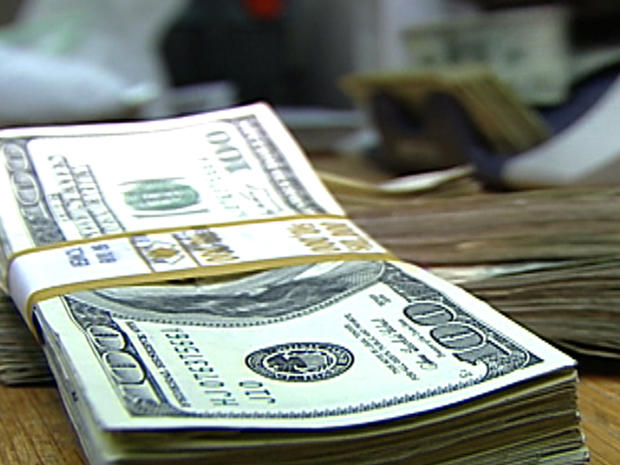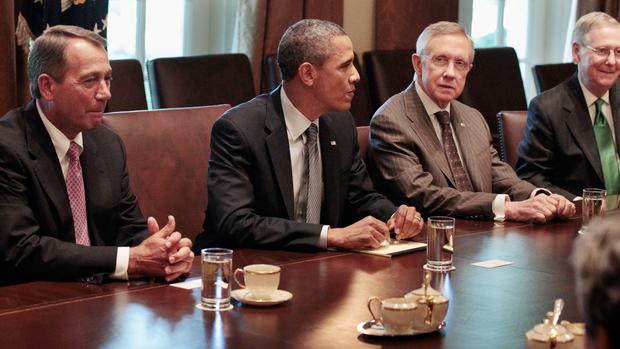Even with deal, federal debt to rise by trillions
The hard-fought deal to raise the debt limit now being considered in Congressis projected to save the nation $2.5 trillion over a ten year period. That sure sounds like a lot - until you put it in perspective.
The federal government currently owes more than $14 trillion to its creditors. Even if the debt limit deal passes, according to the Committee for a Responsible Federal Budget, the nation is on pace to add another $7.7 trillion-$8.7 trillion to its debt over the next decade.
That means that this deal would transform an expected debt of more than $24 trillion in 2021 into an expected debt of about $22 trillion that year. Better, sure. But in the grand scheme of things, it barely scratches the surface - especially considering that the problem is only getting worse.
And consider this: America's 2010 estimated gross domestic product (the value of the goods and services produced in a year) was $14.66 trillion. That means if we could somehow apply the value of the national economy for a year to our debt, we'd still owe trillions of dollars in ten years.
In a statement opposing the deal as not doing enough, Tea Party-linked Republican Sen. Rand Paul of Kentucky called the expected increase of more than $7 trillion to the debt "sickening."
"This plan does not solve our problem," he said. "Not even close. I cannot abide the destruction of our economy, therefore I vigorously oppose this deal and I urge my colleagues and the American people to do the same."
As the non-partisan Congressional Budget Office made clear in June, it is impossible to seriously address the nation's debt problem without dramatic spending cuts, significant tax increases, or a combination of the two.
And therein lies the problem. Health care entitlement programs - Social Security, Medicare and Medicaid - are a major driver of the debt, yet Democrats have shown themselves largely unwilling to make significant cuts to the programs. Tax rates for the wealthiest Americans, meanwhile, are at or near the lowest level they've been in more than half a century - yet Republicans refuse to consider revenue increases.
The so-called debt limit "grand bargain" sought by President Obama - which House Speaker John Boehner eventually walked away from - would have included some cuts to entitlement programs, as well as revenue increases. But even that would only have saved less than $5 trillion over ten years, leaving the nation still owing nearly $20 trillion. The House Republican spending plan passed earlier this year, which was supposed to showcase lawmakers' commitment to fiscal discipline, would have increased the national debt $9 trillion over a decade.
At his press briefing Monday, White House Press Secretary Jay Carney was asked why Americans should consider the debt limit deal a victory considering that the deficit is still poised to increase by trillions of dollars. Carney cast it as a first step, saying the point "is to begin to get the growth in our deficits and the growth in our debt under control, and that is what this agreement begins to do very significantly."
He went on to say Americans should proclaim victory because Congress has not driven the nation into immediate economic catastrophe.
"I think we ought to all take a step back and remember where we were 24, 48 hours ago, a week ago, two weeks ago, the prospect that was hanging out there that America would not honor its obligations for the first time in its history," he said. "...the fact is here we stand today, less than 24 hours after that compromise was reached, anticipating votes in both houses of Congress that will achieve something rather significant. Yes, that's a victory for the American people."
Debt deal rankles liberals, Tea Partiers in the House
CBSNews.com special report: America's debt battle

